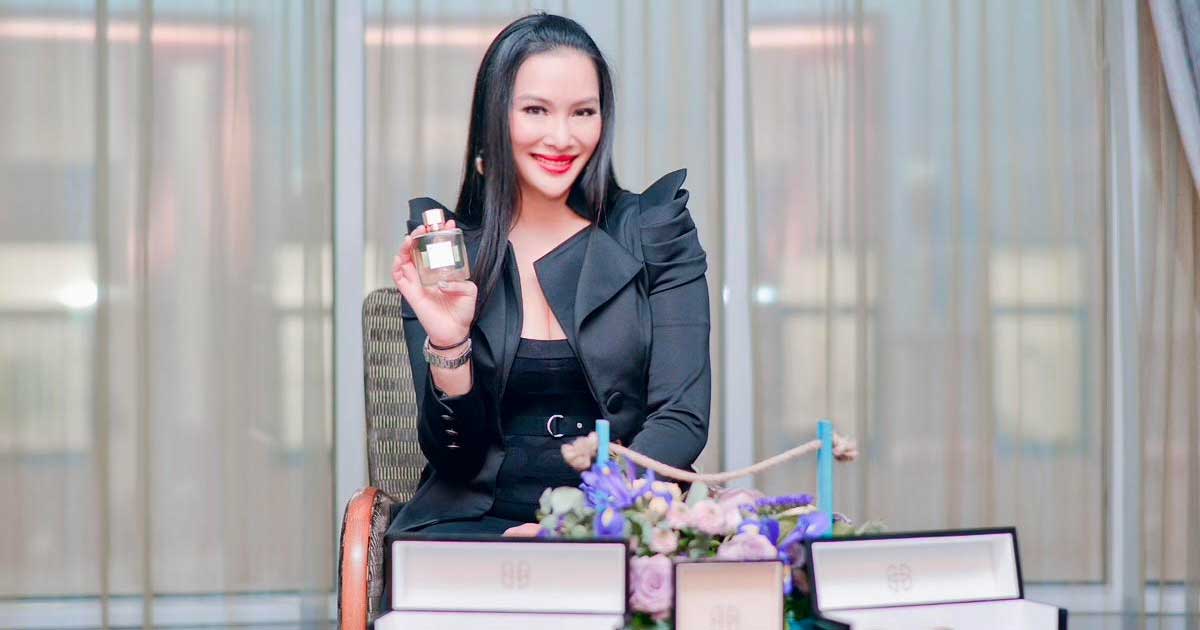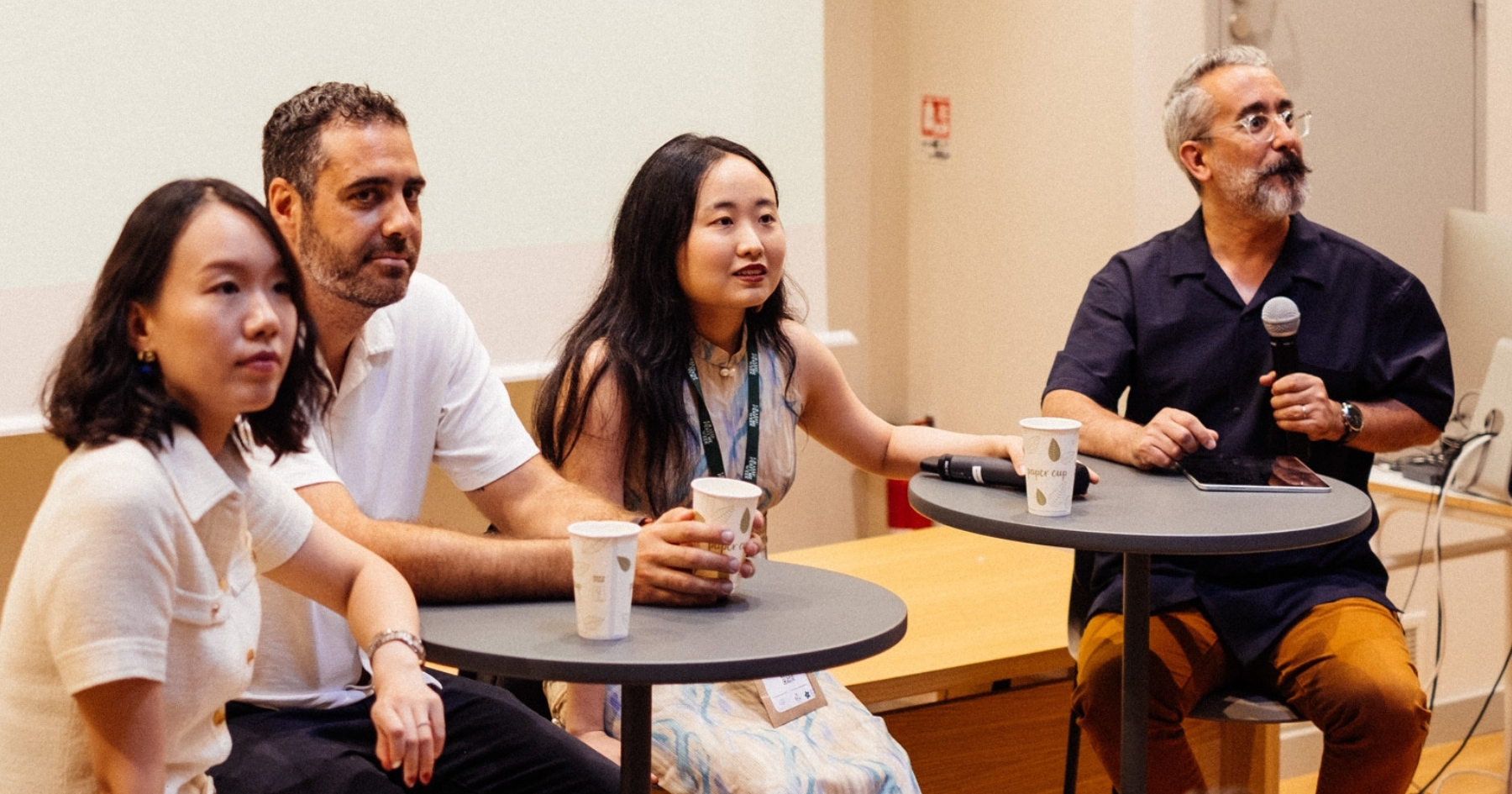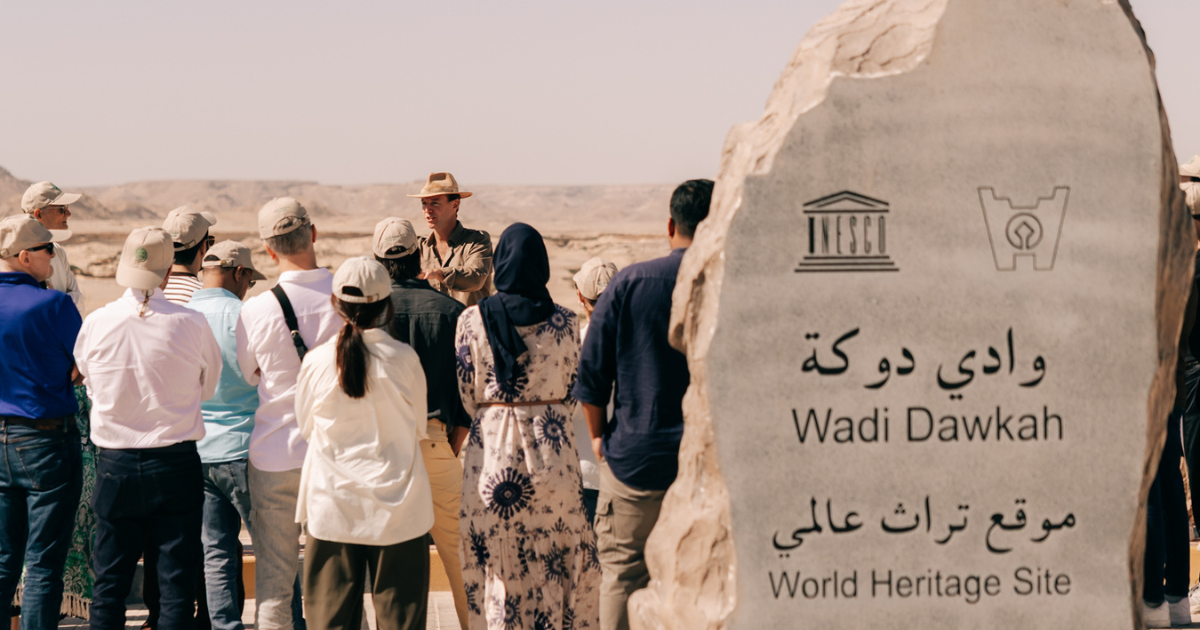Cette publication est également disponible en :
Français
Launched in Paris in 2014, Dusita is present in 60 countries around the world as a brand with a unique universe, rooted in the Thai culture of its founder. A collector of vintage fragrances turned self-taught perfumer, Pissara Umavijani pays tribute to her native country and her father’s poetry with a style nourished by European influences. Interview.
What are the origins of the Dusita brand?
Dusita is first and foremost a result of my passion for perfumery. After the death of my father, the poet Montri Umavijani, I wanted to create something special in honour of his memory. And I decided I would like to create fragrances combining the delicacy of Siamese culture and the art of modern perfumery, which I have admired, studied and collected for so long. When I started out, it was just for fun. But when I moved to Paris in 2011, a friend put me in touch with François Hénin, the founder of the Jovoy perfume store. I showed him my first two compositions: Mélodie de l’Amour and Issara. The thought of selling them never entered my head at that point! They were fragrances I had made just for myself, I was simply curious to know what a perfumery professional would make of them. But François Hénin encouraged me to found my brand. So three years later I launched Dusita. It’s a word borrowed from the Siamese belief system, it means a heavenly paradise where happiness reigns.
Where did you learn to be a perfumer?
I’m self-taught. I shared a love of perfumes with a friend in Thailand and we educated ourselves together. His main interest was in natural compositions, so he mostly read Mandy Aftel’s books. I was more drawn to contemporary perfumery and the main method I followed was the one developed by Jean Carles [a technique for learning ingredients invented by the perfumer who founded the Roure, now Givaudan, perfumery school]. I was also lucky enough to know an IFF perfumer who lived in Thailand, I got the chance to talk to him and he sometimes agreed to smell my creations. This “classical” learning process means that I like to use traditional working methods, like writing my formulas by hand. And I always weigh them myself – which really helped me get to know the ingredients.
Where did you find your raw materials when you were in Thailand?
My friend and I used to order our ingredients from all four corners of the world and have them sent to Thailand, sometimes via dealers because naturally we were buying small quantities. Accords & Parfums has been making my formulas since 2014, so I only use the company’s palette of ingredients, which took some getting used to at the beginning! I remember how surprised I was the first time I received one of my formulas produced by them in Grasse: in olfactory terms, it was almost totally different from the same formula when I made it using my own palette!
How do your new perfumes come about?
My goal is to create a complete collection covering all the different olfactory families. Each time I create a new perfume, I ask myself how I can tie in my initial idea with the concept of “Dusita”, in other words, with paradise, while keeping a French feel to it. For example, with La Douceur de Siam, I came up with the idea of a princess strolling in a garden at sunset. I saw her as gentle and elegant, and I depicted her using exotic flowers: champak, jasmine and Damask rose. Sandalwood and vanilla refer to the perfume that clings to her clothes, and I added a touch of modernity by enveloping the rose in damascones. I’m inspired by a mix of images, smells and colours, while my father’s poems also play an important part.
Do the markets where your perfumes sell influence your ideas?
I really don’t think about markets, no. Just about the creative process. Of course I think it’s important to be able to offer several types of fragrances, so I make the effort to explore different olfactory worlds, but I try to keep to one style. I think the hardest thing for a perfumer is expressing your signature style in different registers. It means you have to break your own mould. Personally I’m most comfortable with florals, which I adore, so I can compose an accord fairly easily. But if I want to come up with a gourmand, woody or aromatic perfume, I need to change my mindset.
How do you express your signature style?
I very much enjoy working with little-known or unknown ingredients. I’m surprised to see the influence trends have, even in niche perfumery. For example, 10 years ago we were seeing pink pepper everywhere. And I wondered why all the brands followed the fashion, when what our clients actually want is to explore things that are different. Right now I’m looking at creating a gourmand perfume – it’s a family I haven’t yet explored. And I’m thinking that I’d like to make something other than a sugary or vanilla perfume. The gourmand concept can be interpreted in so many different ways. This morning I was smelling an essence of Thai basil, an aroma that is almost totally absent from our fragrances even though it’s a very familiar cooking ingredient. And I thought it would go well with aldehydes, spices, possibly even an exotic wood like Hô wood, another material that is hardly ever used. There are plenty of new things to invent!
What are your best sellers?
In France, Anamcara – a flowery, fruity, woody, fairly feminine fragrance – and Moonlight in Chiangmai, which is more masculine, sell the most. In Asia, Mélodie de l’Amour is such a hit that we’re constantly running out of stock. I didn’t think that particular perfume would be so popular. The manager of the Lucky Scent website recently told me that it’s their thirteenth best-selling fragrance! I’m planning to produce a body spray version of it soon.
How long have you been exhibiting at the Esxence fair and why?
I’ve been going there since Dusita began. The first time, in 2015, my collection still wasn’t even on sale. I was the last brand to sign up and the stand they gave me was right opposite the toilets. But it turned out to be quite a strategic spot because everyone had to go past my stand! This year is my sixth appearance at the fair. The goal is of course to present the brand and discuss strategy with retailers, distributors and representatives from all the different countries. But it’s also an opportunity to see people from the industry who have become friends and find out what everyone is up to. I’ve taken part in several shows, but Esxence is my favourite.
—
- Find out more about Dusita: parfumsdusita.com
REPORT « NICHE AND CONFIDENCES »
- Niche perfumery moves centre stage, by Jessica Mignot
- Sylviane Lust (Beauty by Kroonen) : “We choose complex fragrances that evolve on the skin, and that tell you the perfumer has been given a free hand.”, by Jessica Mignot
- Karine Torrent (Floratropia) : “In my view, 100% natural perfumery is the new niche”, by Jessica Mignot
- Barbara Herman (Eris Parfums): “Whether consciously or not, with each new creation I tend to explore a very different path from the previous one”, by Sarah Bouasse
- Serge Laugier (Le Paravent): “It’s important to me to offer the more niche fragrances, because they always have an unique olfactory signature”, by Jessica Mignot
- Cécile Zarokian: “It’s possible to compete successfully with the big fragrance houses”, by Guillaume Tesson
- Pissara Umavijani (Dusita): “The hardest thing for a perfumer is expressing your signature style in different registers”, by Sarah Bouasse
- Clara Feder and Michel Gutsatz (Le Jardin retrouvé): “We’re trying to build a balanced collection while sticking to our motto: avant-garde as a legacy.”, by Jessica Mignot
- Liam Sardea (LKNU): “We try to guide each person to create their own constellation in this vast cosmos”, by Guillaume Tesson
- Dhaher bin Dhaher (Tola): “I’m spending more and more of my time breaking down barriers between olfactory cultures”, by Guillaume Tesson
- Nathalie Feisthauer (LAB Scent): “For me, niche is a definition of beauty”, by Guillaume Tesson
- Franco Wright (Luckyscent): “Ultimately customers see how the niche category pushes fragrance in more interesting directions”, by Anne-Sophie Hojlo
- Luca Maffei (Atelier Fragranze Milano): “Niche perfumery allows me to take risks”, by Jessica Mignot
- Murat Katran and Mert Guzel (Nishane): “Istanbul is literally a bridge between cultures”, by Guillaume Tesson
- Agnieszka Lukasik (Galilu): “Now, the brands come to us”, by Anne-Sophie Hojlo








Comments